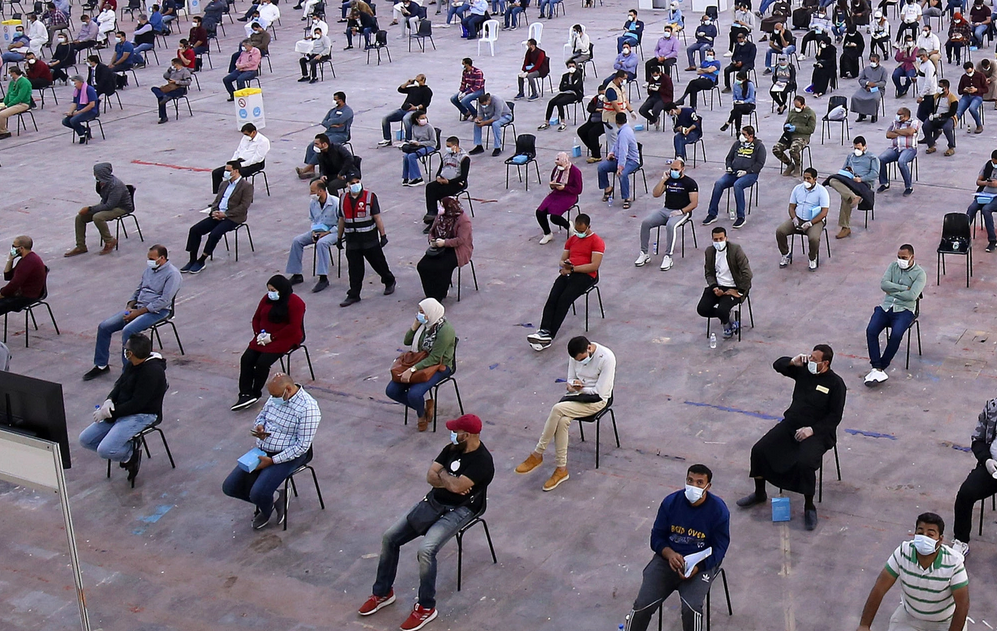How suddenly a tiny, invisible thing changed our lives?

COVID-19, the disease caused by the coronavirus, has drastically changed the routines of our lives. For instance, as a columnist closely following the Middle East, I still cannot focus entirely on my beat because the world’s top agenda is still the pandemic. The coronavirus continues to infect people and claim lives across the world, and it is changing the dynamics across regions. Health care professionals and experts warn that the worst is not over. While countries have made a huge effort to contain the spread, they are also coping with the economic downturn as well as the other side effects of the biggest nightmare of 2020.
For a long time, the world has not talked about anything other than the coronavirus. U.S. President Donald Trump has not threatened Iran although the tension between the two countries has escalated after the assassination of Gen. Qassem Soleimani. It has fallen from the agenda, like a lot of things. People from the Middle East has not talked about Israel, and Israel has not talked about predominantly Muslim countries. The U.S.-Taliban peace deal is not the biggest news of 2020; the coronavirus has borne away the bell. Syria, Palestine, Gaza, Yemen, Kashmir, East Turkestan, Myanmar … People have lost their focus on humanitarian issues as well.
Of course, there are authorities who are obliged to follow these developments as part of their duty, but the public was not interested in them; the media did not put them on front pages for months. The top issue for states and governments has become tackling COVID-19.
Everyone has been working on surviving on separate ships, facing the same storm. We were all in the eye of the hurricane and asking when it would calm down. All of us have fought our own battles against the same enemy and the war is not over yet.
The coronavirus has affected all of us and brought unprecedented changes to our lives. In the modern era, people are encouraged to go out, not to stay home, to be alive and a part of the world. Now the campaigns for isolation continues, there are still slogans everywhere urging people to “stay home.”
We were saying that children should not spend too much time watching TV, playing with their tablets or mobile phones. But now we put them in front of the screen for distance education.
As the pandemic hit everywhere, from metropolitan areas to small villages, we found ourselves in a virtual world and we are not out yet. The digital world has gained momentum. Humanity, already moving through a phase of transformation, has suddenly found itself following a new routine. The countries at the center of globalization have had to isolate themselves; networking is the new old and self-isolation is the new sheriff in town.
We have fallen into in a transcendental reality that have made us feel like we are living in a dystopia. Almost all of us did not notice the sweeping change in our lives at first. Most of us thought that we had paused our habits and daily practices. Ironically, it was like we voluntarily agreed to go to prison. Everyone has supposed that it was temporary. We are out not but we are under probation. And everything has changed outside, we still don’t know if we will go back to old days.
Yes, the world passed through other pandemics like the H1N1 (Swine flu), SARS, MERS and Ebola, etc. But COVID-19 has affected the globalized world, shaking it up in many, unprecedented ways. The number of infected people all over the world has already exceeded 18.5 million, while the death toll is current around 700,000. Can we call it the plague of our era? It is probably not, but the atmosphere it created surely is.
That said, the epidemic cannot be considered as a health crisis alone. We have seen its political, socioeconomic ramifications since the beginning, it is for sure that 2020 will be recalled as the start of a new global economic crisis in the future. The world economy has already started to see a period of decline and many countries have already started to experience a recession in 2020.
And yet, many people had hope, they were trying to avoid fear since the beginning. Most of them thought that it would go as it came. They were optimists.
However, some of us have been pessimistic. Pessimists have doubt about that a vaccine would be found any time soon. They still fear getting sick and dying. Some are still panicking about their economic problems. The fear of losing their jobs and not earning money to secure their and their families’ needs has come out on top for many. Probably, the number of these people have surpassed those who have been frightened of the virus itself.
Some of us have become claustrophobic. Some of us have got depressed. For sure, there are a lot of people who suffer from psychological problems due to this period. Some believe in conspiracy theories; they are sure it is a biological weapon or something like that. Some say that God walks in mystery.
The only news that people around the world are waiting for is the announcements of a vaccine. While some, particularly a number of young people, ignores the facts, the international community is on alert against a second wave.
It is unbelievable that something microscopic, something smaller than a grain of sand, has turned the world upside down. How suddenly the whole world changed and how suddenly the whole world started to talk about something invisible. How a tiny little virus has brought all of us to our knees.
Merve Şebnem Oruç is an award-winning Turkish journalist and columnist for Daily Sabah and HABER. She is on Twitter here.











